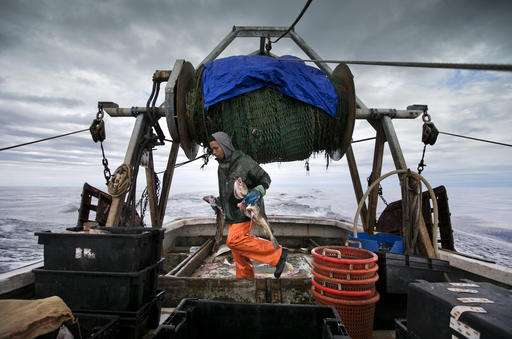US, Canada broker agreement to share dwindling cod fishing

The United States and Canada have brokered a deal to share what's left of the dwindling North American cod fishing business in the Atlantic next year.
Both countries fish for cod, which is an important food fish that has declined in population following overfishing and warming ocean temperatures with climate change. The two fisheries overlap in the eastern reaches of Georges Bank, a key fishing area located off of New England.
The countries have agreed to set the total allowable catch at 730 metric tons next year. The U.S. will be allowed to take 146 metric tons and Canada will get the rest.
The agreement comes as cod quotas off of New England, where the fish is associated with fish and chips, have fallen precipitously. The agreement with Canada represents an 8 metric ton increase for the U.S. and a 96 metric ton increase for Canada, leaving some in the U.S. fishing industry irked.
"Cod fish is very important to the United States, as it is to Canada," said Jackie Odell, executive director of the Gloucester-based Northeast Seafood Coalition. "The sharing agreement hasn't worked out very well for the U.S. fishery."
The New England Fishery Management Council approved the agreement for the U.S. on Wednesday. Canada approved it earlier.
The council voted in 2014 to slash U.S. fishermen's total Gulf of Maine cod catch limit from 1,550 metric tons to 386 metric tons. The quota is now 280 metric tons. The council also cut the U.S.'s total Georges Bank cod quota from 1,787 metric tons to 608 metric tons last year.
Atlantic cod remain available to consumers because of fish caught by fishermen from countries such as Norway and Iceland, but the fish's decline off of New England is a major threat to the domestic fishing industry. Some scientists have said warming ocean waters make it difficult for the fish to reproduce enough to recover from fishing pressure.
© 2016 The Associated Press. All rights reserved.




















